https://www.youtube.com/watch?v=KkxSSpsOj1Y
Did you know that zucchini is not only a delicious vegetable, but it’s also one of the most versatile and widely used vegetables in the world? In fact, according to the United States Department of Agriculture (USDA), zucchini is the most commonly grown type of summer squash in the United States. With its mild flavor, tender texture, and numerous health benefits, it’s no wonder that zucchini has become a staple in kitchens everywhere.
From zucchini recipes to tips for growing and cooking zucchini, this comprehensive guide will take you on a journey through the world of this remarkable vegetable. Whether you’re a seasoned cook or a beginner in the kitchen, you’ll discover everything you need to know about zucchini, its different varieties, its nutritional value, and how to make the most out of it in your culinary adventures.
Key Takeaways:
- Zucchini is the most commonly grown type of summer squash in the United States.
- Zucchini is a versatile and widely used vegetable with a mild flavor and tender texture.
- This guide will provide information on zucchini recipes, growing and cooking tips, different zucchini varieties, and its nutritional value.
- Zucchini is rich in vitamins, minerals, and antioxidants, making it a healthy addition to any diet.
- By exploring the world of zucchini, you can unlock a whole new range of delicious and nutritious dishes.
Choosing the Best Zucchini
When it comes to picking zucchini, selecting the right ones can make a significant difference in the flavor and texture of your dishes. Follow these tips to ensure you choose the best zucchini for your recipes:
- Size matters: Opt for small to medium-sized zucchinis. These are typically more tender with a sweeter flavor compared to their larger counterparts.
- Appearance: Look for zucchinis with bright green skin. Avoid ones with bruises, pits, or blemished skin.
- Freshness: Check the firmness of the zucchini. Gently squeeze it to see if it offers a slight resistance. A firm zucchini indicates freshness.
By following these guidelines, you can ensure that the zucchinis you choose are packed with flavor and freshness, perfect for creating delicious meals.
Storing Zucchini
Proper storage is key to keeping zucchini fresh for longer. By following the right storage techniques, you can extend the shelf life of your zucchinis and enjoy their delicious flavor for weeks. Here are some tips on storing zucchini to keep them in their prime condition:
- Avoid washing or cutting the zucchini until you’re ready to use it. Extra moisture can cause the zucchini to spoil faster.
- Store the whole vegetable in the crisper drawer of your refrigerator or a cool and dry place. This will help maintain its freshness.
- If you choose to use a bag for storage, make sure to leave it open to allow for airflow. This prevents moisture buildup that can lead to spoilage.
With these simple steps, you can ensure that your zucchinis stay fresh and flavorful for up to two weeks. Now you can stock up on zucchinis when they are in season and have them readily available for your favorite recipes.
To illustrate the proper storage techniques for zucchini, here’s a table summarizing the best practices:
| Storage Method | Description |
|---|---|
| Refrigeration | – Store whole zucchinis in the crisper drawer – Avoid washing or cutting until ready to use – Keep zucchinis away from other high ethylene-producing fruits |
| Using a Bag | – Choose a breathable bag or perforated plastic bag – Leave the bag open to allow for airflow – Place it in the refrigerator |
| Freezing | – Slice or chop zucchini and blanch it briefly – Pat dry and pack into freezer-safe containers or bags – Label with the date and freeze |
With these storage tips and techniques, you can make the most of your zucchini harvest and enjoy fresh zucchinis even when they are out of season. So, never let your zucchinis go to waste again. Keep them stored properly to savor their flavor and nutrient-rich goodness for longer!
Health Benefits of Zucchini
Zucchini is not only delicious but also packed with nutrients. Its impressive nutritional profile makes it a valuable addition to a healthy diet. Let’s explore the health benefits of zucchini and why you should consider incorporating it into your meals.
Nutritional Value
When it comes to zucchini nutrition, this humble vegetable doesn’t disappoint. It is low in calories and fat, making it a great choice for weight management. Additionally, zucchini is a good source of dietary fiber, which promotes healthy digestion and can help prevent constipation.
But it doesn’t stop there. Zucchini is rich in vitamins and minerals that play essential roles in maintaining overall health. Here are some key nutrients found in zucchini:
| Nutrient | Amount per serving (1 cup, cooked) |
|---|---|
| Vitamin A | 735 IU |
| Vitamin C | 22.5 mg |
| Vitamin K | 8.5 mcg |
| Potassium | 322 mg |
| Folate | 40.5 mcg |
These vitamins and minerals are essential for various bodily functions. Vitamin A promotes healthy eyesight, while vitamin C boosts immune function and aids in collagen production for healthy skin. Vitamin K plays a crucial role in blood clotting, and potassium helps maintain proper heart and muscle function. Folate is essential for proper cell growth and development, especially during pregnancy.
Moreover, zucchini contains antioxidant compounds, such as carotenoids and flavonoids, which help protect the body from oxidative stress and inflammation. These antioxidants play a role in reducing the risk of chronic diseases, including heart disease and certain types of cancer.
Versatile Culinary Ingredient
Not only does zucchini offer numerous health benefits, but it is also incredibly versatile in the kitchen. Its mild flavor and tender texture make it a perfect addition to a variety of dishes.
You can enjoy zucchini roasted, grilled, sautéed, or even raw in salads. It can be spiralized into noodles as a low-carb alternative, or used as a stuffing in zucchini boats. Zucchini can also be incorporated into soups, stews, casseroles, and baked goods.
Try this simple and delicious recipe: Grilled Zucchini Salad with Lemon Vinaigrette. Slice zucchini into thin rounds, brush with olive oil, and grill until tender. Toss with a tangy lemon vinaigrette and sprinkle with fresh herbs. Serve as a refreshing side dish or light lunch option.
With its versatility and nutritional value, zucchini is not only a healthy choice but also a tasty one.
Cooking with Zucchini
Zucchini is a versatile vegetable that can be cooked in various ways. Whether you’re grilling, roasting, sautéing, or baking, zucchini is a great addition to many dishes. Its mild flavor and tender texture make it a favorite ingredient for zucchini recipes.
If you’re looking to add zucchini to your meals, here are some zucchini cooking methods and culinary uses to explore:
1. Salads
Zucchini can be sliced or shredded and added to salads for a fresh and crisp element. Its subtle flavor blends well with other ingredients, and it adds a satisfying crunch. Try tossing zucchini with leafy greens, cherry tomatoes, and your favorite dressing for a light and refreshing salad.
2. Stir-fries
Sauteed zucchini works wonderfully in stir-fries. Its tender texture pairs well with other vegetables and protein sources. Heat some oil in a pan, add zucchini, along with your choice of colorful vegetables, and stir-fry until cooked through. Add your choice of sauce for a flavorful dish.
3. Pasta Dishes
Zucchini can be used as a healthy substitute for noodles in pasta dishes. Use a spiralizer to create long, thin strands of zucchini that resemble spaghetti. Lightly sauté or blanch the zucchini noodles, and serve them with your favorite pasta sauce. It’s a great way to reduce carb intake while adding extra veggies to your meal.
4. Baked Goods
Zucchini adds moisture and a subtle sweetness to baked goods. Consider adding grated zucchini to muffins, bread, or cakes for a healthier twist. The zucchini helps keep the baked goods moist while adding a nutritious element to your treats.
“Zucchini is a versatile vegetable that can be cooked in various ways. Its mild flavor and tender texture make it a favorite ingredient for zucchini recipes.”
These are just a few examples of how you can incorporate zucchini into your cooking. Feel free to experiment and discover your own zucchini culinary uses. Don’t forget to explore zucchini recipes online and in cookbooks for more inspiration.
Different Types of Zucchini
Zucchini, a versatile vegetable, comes in various types and varieties, each with its own unique characteristics. Exploring the different types of zucchini can add variety and excitement to your culinary adventures, helping you discover new favorites.
Some common types of zucchini include:
- Green Zucchini: This is the classic zucchini variety that most people are familiar with. It has a vibrant, dark green color and a mild flavor.
- Yellow Zucchini: Yellow zucchini, also known as golden zucchini, has a bright yellow color and a slightly sweeter taste compared to green zucchini.
- Striped Zucchini: Striped zucchini, as the name suggests, has a striped pattern on its skin, alternating between green and yellow. It offers a visual twist to your dishes.
These are just a few examples of the different types of zucchini available. You may also come across other varieties with unique flavors, textures, and colors. Experimenting with these varieties allows you to create visually appealing and flavorful meals.
| Types of Zucchini | Color | Flavor | Texture |
|---|---|---|---|
| Green Zucchini | Dark green | Mild | Firm |
| Yellow Zucchini | Bright yellow | Slightly sweet | Firm |
| Striped Zucchini | Green and yellow stripes | Mild | Firm |
Growing Zucchini in your Garden
If you’re interested in growing your own zucchini, you’re in for a treat! Not only is it a relatively easy process, but it’s also incredibly rewarding to harvest your own fresh zucchinis. Here’s everything you need to know about growing zucchini in your garden.
First and foremost, zucchini plants thrive in well-draining soil. They prefer soil that is rich in organic matter and has a pH level between 6 and 7. Choose a sunny spot in your garden that receives at least 6 to 8 hours of sunlight each day.
Pro Tip: If you have limited space, zucchini can be grown in containers as well. Choose a container that is at least 24 inches deep to accommodate the plant’s root system.
When it comes to planting zucchini, you have two options: seeds or seedlings. If you choose to start from seeds, sow them directly in the ground once the danger of frost has passed and the soil temperature reaches around 60°F (15°C). Plant the seeds about 1 inch deep and space them 2 to 3 feet apart.
If you prefer to start with seedlings, you can purchase them from a local nursery or start your own indoors about 4 to 6 weeks before the last frost date. Transplant the seedlings into your garden when they are about 3 to 4 inches tall, ensuring they have enough space to spread and grow.
Once your zucchini plants are in the ground, they will require regular watering. Keep the soil consistently moist, but be careful not to overwater, as zucchinis are susceptible to root rot. Aim to water the plants deeply at least once a week, ensuring the water reaches the root zone.
Pro Tip: To help retain moisture and prevent weed growth, apply a layer of mulch around the base of the plants.
Zucchinis are fast-growing plants and can grow quite large, so it’s important to provide them with adequate support. Consider using stakes, trellises, or cages to prevent the plants from sprawling on the ground. This will also help improve air circulation and reduce the risk of diseases.
Once your zucchini plants start producing fruits, it’s time to harvest! Zucchinis are typically ready to harvest when they reach 6 to 8 inches in length. Use a sharp knife or pruners to cut the zucchini from the vine, making sure to leave a small stem attached to the fruit.
| Plant Care Tips | Cultivation |
|---|---|
| 1. Use well-draining soil rich in organic matter. | 1. Choose a sunny spot in your garden. |
| 2. Water deeply once a week, keeping the soil consistently moist. | 2. Sow seeds directly in the ground or start with seedlings. |
| 3. Apply mulch to retain moisture and suppress weed growth. | 3. Provide support for the plants as they grow. |
| 4. Watch for pests and diseases, and take appropriate measures. | 4. Harvest zucchinis when they reach 6 to 8 inches in length. |
With proper care and attention, your zucchini plants will reward you with a bountiful harvest that you can enjoy in a variety of delicious recipes.
Delicious Zucchini Dishes to Try
Zucchini is not just a versatile vegetable, but it also shines in a variety of mouthwatering dishes. Whether you’re in the mood for a healthy appetizer, a satisfying main course, or a scrumptious side dish, zucchini has got you covered. Here are some delectable zucchini dish ideas to inspire your culinary adventures:
Zucchini Fritters
If you’re searching for a delightful appetizer or a quick snack, zucchini fritters are a must-try. These crispy treats are made by combining grated zucchini with a mixture of flour, eggs, and seasonings. Pan-fried to golden perfection, they’re perfect for dipping into a tangy yogurt or herb-infused sauce.
Zucchini Noodles
For a lighter and gluten-free alternative to pasta, zucchini noodles, also known as zoodles, are a fantastic choice. Create these low-carb “noodles” with a spiralizer or a vegetable peeler and toss them in your favorite pasta sauce for a guilt-free and satisfying meal.
Stuffed Zucchini Boats
Elevate your zucchini game by transforming them into delicious stuffed boats. Scoop out the seeds and flesh, then fill them with a flavorful mixture of protein, grains, and vegetables. Bake them until tender and topped with melted cheese for a mouthwatering and impressive main dish.
Zucchini Bread
When life gives you zucchinis, make zucchini bread! This moist and flavorful loaf is a delightful way to enjoy zucchini. The grated zucchini adds both moisture and a subtle sweetness to the bread, making it a delicious treat for breakfast or as a snack.
Zucchini Side Dishes
Looking for the perfect accompaniment to your main course? Zucchini shines as a side dish, whether it’s grilled zucchini with a sprinkle of Parmesan cheese, sautéed zucchini with garlic and herbs, or baked zucchini fries served with a creamy dip. These zucchini side dishes are sure to impress.
| Zucchini Dish | Description |
|---|---|
| Zucchini Fritters | Crispy and flavorful appetizers made with grated zucchini, flour, eggs, and seasonings, perfect for dipping. |
| Zucchini Noodles | Low-carb and gluten-free pasta alternative made from spiralized zucchini, perfect for a light and healthy meal. |
| Stuffed Zucchini Boats | Zucchinis hollowed out and filled with a delicious mixture of protein, grains, and vegetables, baked to perfection. |
| Zucchini Bread | Moist and flavorful bread made with grated zucchini, perfect for breakfast or a tasty snack. |
| Zucchini Side Dishes | Grilled zucchini with Parmesan cheese, sautéed zucchini with garlic and herbs, or baked zucchini fries with a creamy dip. |
Whether you’re a novice or an experienced cook, these zucchini dishes will surely impress your taste buds. So don’t be afraid to explore the endless possibilities with zucchini and let your creativity shine in the kitchen!
Nutritional Value of Zucchini
When it comes to nutrition, zucchini is a powerhouse of beneficial nutrients. It not only adds flavor and texture to your meals but also provides numerous health benefits. Let’s take a closer look at the nutritional value of zucchini:
Zucchini Nutrients
Zucchini is a rich source of vitamins A, C, and K. Vitamin A promotes healthy vision and supports immune function, while vitamin C is an antioxidant that helps protect cells from damage and boosts collagen production. Vitamin K plays a vital role in blood clotting and bone health.
Zucchini Vitamins
In addition to the vitamins mentioned above, zucchini also contains B vitamins, including folate. Folate is essential for proper cell division and the production of DNA. It is especially important for pregnant women, as it helps prevent neural tube defects in developing fetuses.
Zucchini Minerals
Zucchini is a good source of potassium, which helps regulate blood pressure, maintain proper muscle function, and support heart health. Potassium also plays a role in balancing fluids in the body. Additionally, zucchini contains trace amounts of other minerals, such as magnesium, calcium, and iron.
Zucchini Antioxidants
Zucchini contains antioxidants, including carotenoids and flavonoids, which help combat oxidative stress and reduce inflammation in the body. These antioxidants play a crucial role in protecting cells from damage caused by free radicals, which are unstable molecules that can lead to chronic diseases.
By incorporating zucchini into your diet, you can benefit from its nutrient-rich composition and contribute to a well-rounded and healthy eating plan.
Conclusion
Zucchini, the versatile and nutritious vegetable, is a culinary gem that can transform your meals with its delicate flavor and tender texture. Whether you’re a seasoned culinary enthusiast or just starting your cooking journey, zucchini offers endless possibilities to enhance your recipes. Throughout this comprehensive zucchini vegetable guide, we have explored the numerous benefits of this remarkable vegetable and provided insights into different varieties and cooking methods.
From a nutritional standpoint, zucchini is a powerhouse of vitamins including A, C, and K, as well as vital minerals like potassium and folate. Incorporating zucchini into your diet not only adds a burst of freshness and vibrancy to your meals but also contributes to your overall well-being.
Whether you prefer grilling, roasting, sautéing, or baking, zucchini can effortlessly adapt to your culinary preferences. Explore the diverse world of zucchini recipes, from delightful appetizers to tantalizing side dishes. Let your imagination run wild and experiment with flavors to create your own signature zucchini dishes.
In conclusion, zucchini is a true culinary champion that deserves a special place in your kitchen. With its remarkable taste, nutritional value, and versatility, zucchini is an essential ingredient that can elevate your cooking to new heights. So dive into the zucchini experience, embrace its endless possibilities, and savor the freshness and flavors that this amazing vegetable has to offer.

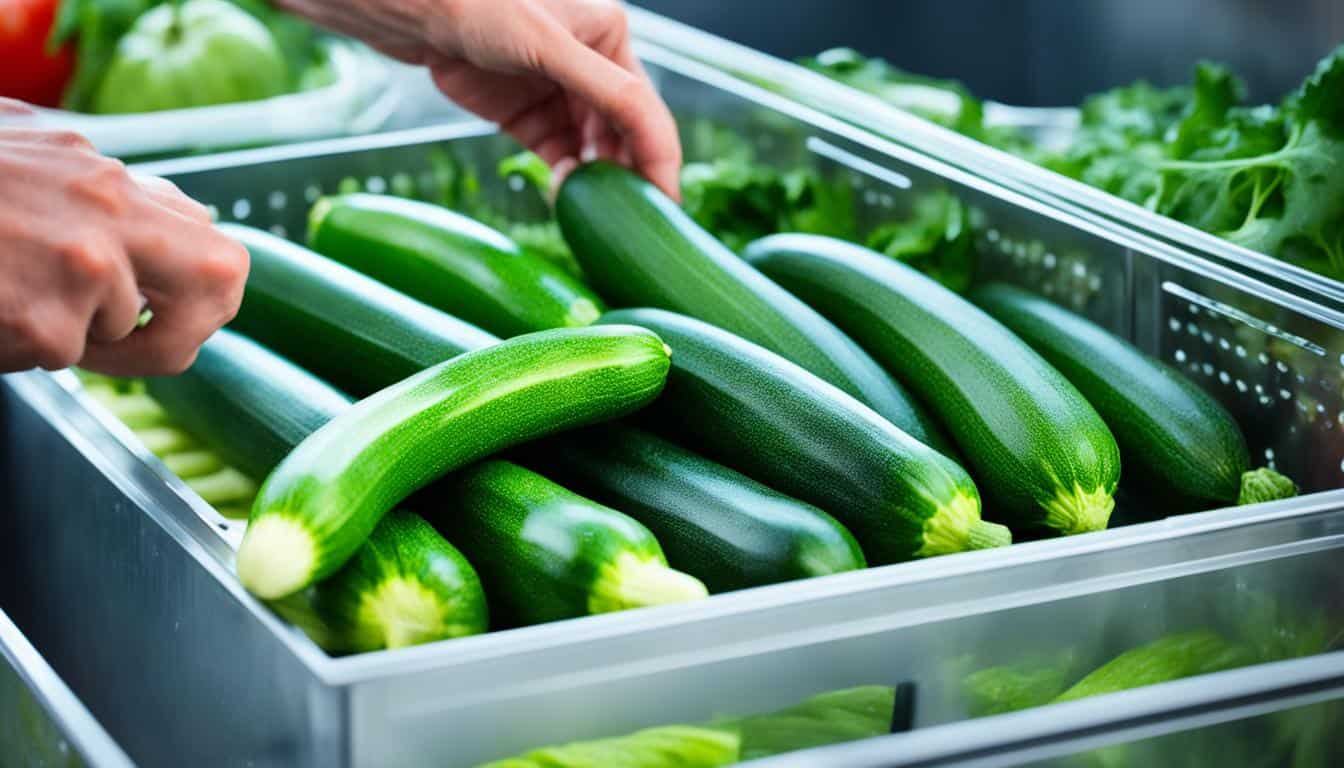
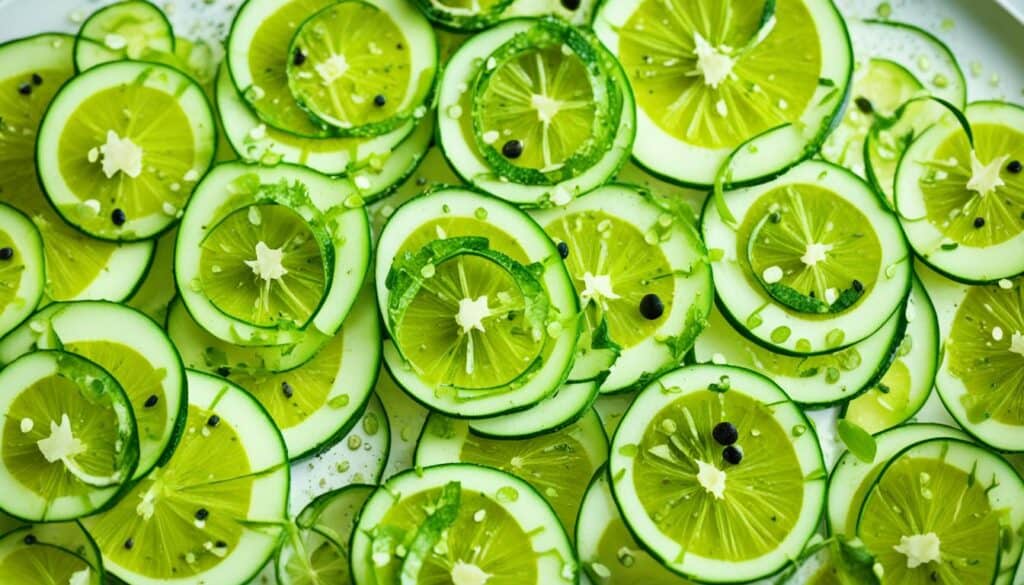
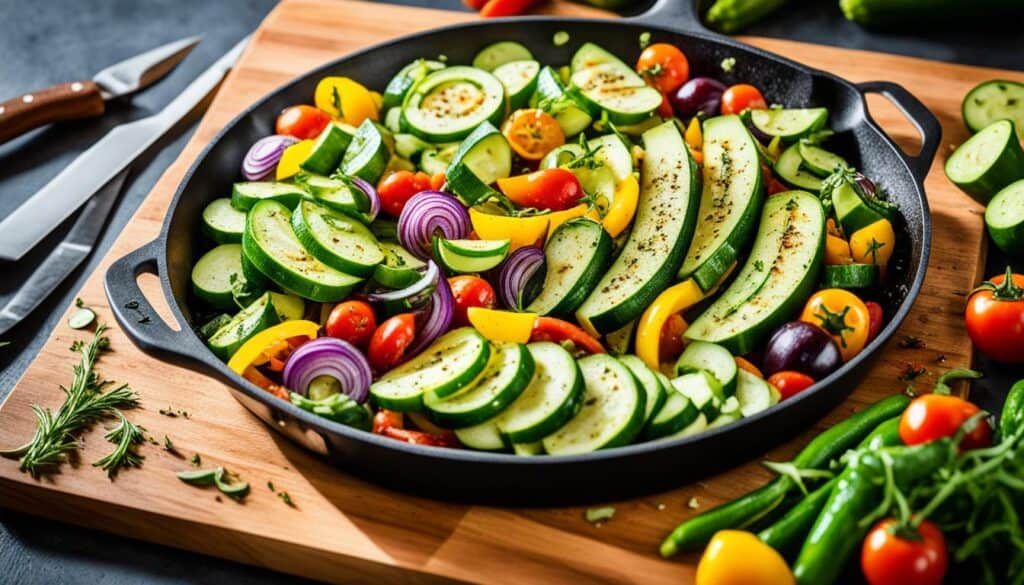

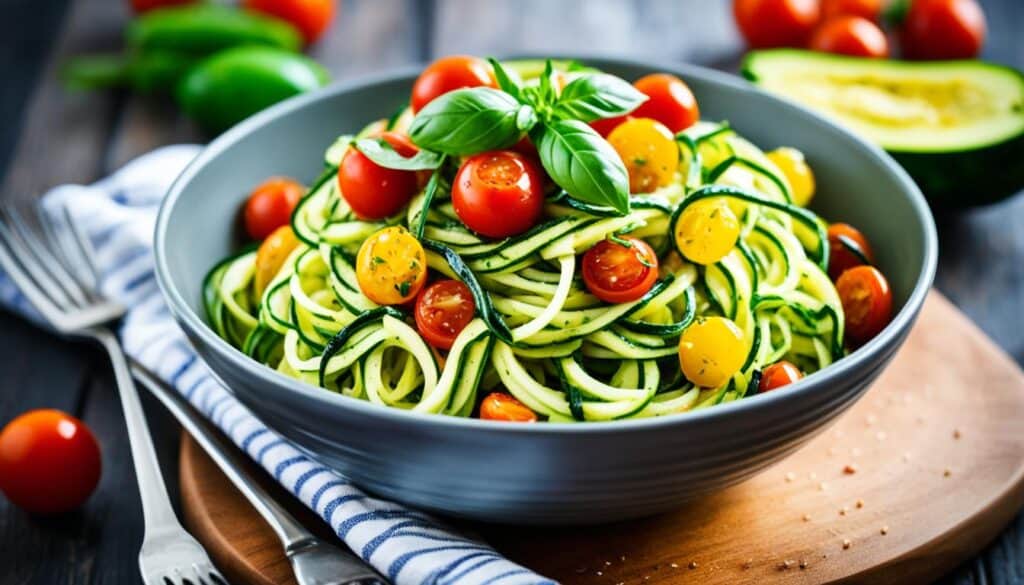
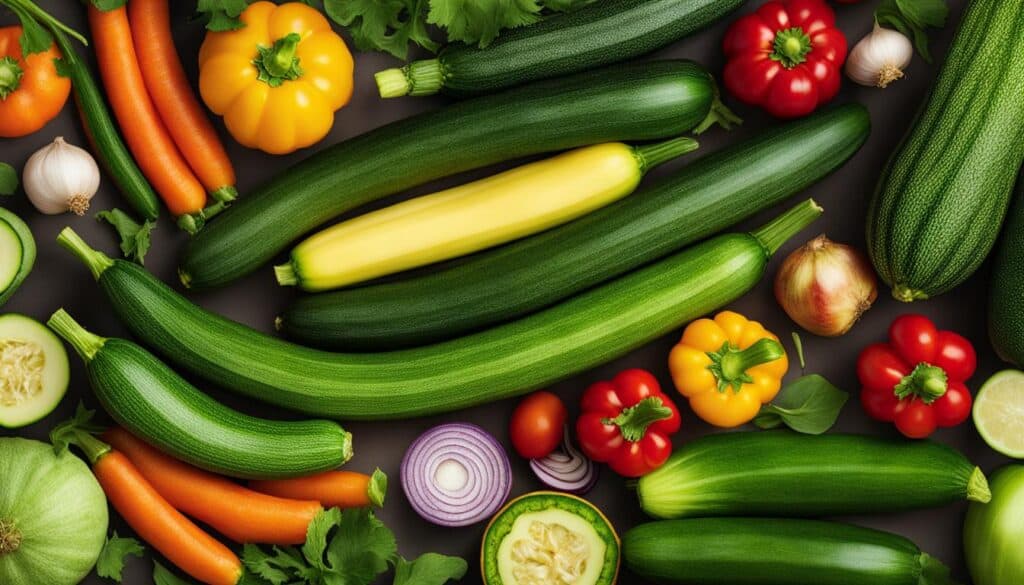



Leave a Reply